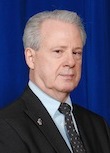It was never what today’s secular ideologues assume
 (Steven Miller, NPRI) – Nevada’s state constitution speaks in several places of something called “the common schools.”
(Steven Miller, NPRI) – Nevada’s state constitution speaks in several places of something called “the common schools.”
While that term is regularly read today to mean secular tax-supported government schools, that wasn’t what the term meant in 1864 when Nevada’s constitution was being written.
So what did it mean?
The term “the common school” dates primarily from before the Civil War, when it became widely used by Horace Mann and others who were eager to re-engineer the education that American young people were receiving from their local community schools.
The term, therefore, refers not only to community schools, but also to a Mann-led program of social engineering through state-controlled education. That particular program’s unique history has been massively documented by Boston University Professor Charles L. Glenn, in his watershed book, The Myth of the Common School:
The heart of this program, which we will call “the common school agenda,” is the deliberate effort to create in the entire youth of a nation common attitudes, loyalties, and values, and to do so under the central direction by the state. In this agenda “moral education” and the shaping of a shared national identity were of considerably more ultimate importance than teaching basic academic skills.
Far from seeking the kind of secular and studiously non-religious curricula at which Nevada public schools today aim, Mann and his fellow activists of the common-school movement strongly believed that both religious and moral instruction were essential elements of sound, common-school education.
“It was beyond questioning [for Mann and his allies] that schools should seek to educate the heart and the will as well as to fill the mind with facts and skills,” summarized Glenn.
Where Mann, a Unitarian, and his liberal Protestant colleagues quarreled “with orthodox Protestant and (a little later) with Roman Catholic opponents had to do with the nature and basis of such education rather than with whether it was necessary in common schools,” wrote Glenn:
The primary goal of the common school crusade was to form the hearts of the next generation, to assure that they would, in the words of a leading Congregationalist journal, grow up “with the state, of the state and for the state.”
…It is true that the common school ideology was hostile to teaching the most distinctive doctrine of revealed religion, but to its expounders this was the only way to penetrate to the real intentions of “the Founder of Christianity” [i.e., Jesus Christ].
Essentially, Mann & Co. were seeking to use the state to impose a new creed, to which only a few intellectuals subscribed, upon emerging generations, writes Glenn:
Briefly stated, the reformers attempted to deal with the real (though exaggerated) threat of social disunity, to which they themselves were contributing through their abandonment of the religious convictions of previous generations, by acting as though a newly defined “religion” rooted in no community of faith could serve to reintegrate the society.
This was an era, notes Glenn, when Unitarians still argued they were Christians — despite the refusal of trinitarian orthodox to recognize that claim:
Unitarians believed that they were preserving the essence of Christianity, purged of “sectarian” and divisive doctrines which — they argued —were no part of the message of Jesus. This essential Christianity could and should be taught in the common schools, since it represented a “religion of heaven” to which no right-minded parent could object …
This least-common-denominator surrogate for Christianity may have offended the devout, but the political class of the day seized upon it — especially when Massachusetts went the next step and, in 1852, made education compulsory.
Suddenly education of the young was no longer primarily the responsibility of parents, the local community and local denominations. Increasingly seen as a state responsibility, education now became available for colonization by special interests utilizing the state.
Moreover, those interests now had a superficially high-minded shield behind which to advance. As Mann had demonstrated in Massachusetts, ostensibly generic “Christianity” neutralized most opposition to states’ takeover of youth education.
Now the machinery of state coercion and confiscation could be harnessed to the private goals of politicians, administrators, and teachers.
Politicians grasped new political power, while administrators and teachers got higher salaries. For a school system funded by tax dollars, rather than attentive, actual customers, hiking salaries across the board becomes much easier — regardless of competence.
In such a school system, notes economist Barry Simpson, teachers and administrators are largely insulated from the wishes of students and parents. That insulation, he argues, solidified the power of elite educationists for years to come:
The suppliers, not the demanders, choose the curricula, the textbooks, decide the certification process for teachers, etc. They run the whole show, and only have bureaucrats to please rather than consumers. Not only are bureaucrats easier to please since they don’t spend their own money, but if the politician/bureaucrat needs information to placate angry demanders, to whom do they turn? The educationists, in the positions of power, have all of the ‘relevant’ information.
“The present crisis of confidence in public education,” says Glenn, “reflects a flaw in the foundation that Mann and others laid.”
Steven Miller is managing editor of Nevada Journal and Senior Vice President of Nevada Policy Research Institute, a non-profit, non-partisan think tank that produces and shares ideas and information that empowers people. For more information, please visit www.NPRI.org.
The column was originally published on NPRI’s website.


Facebook
Twitter
Pinterest
RSS